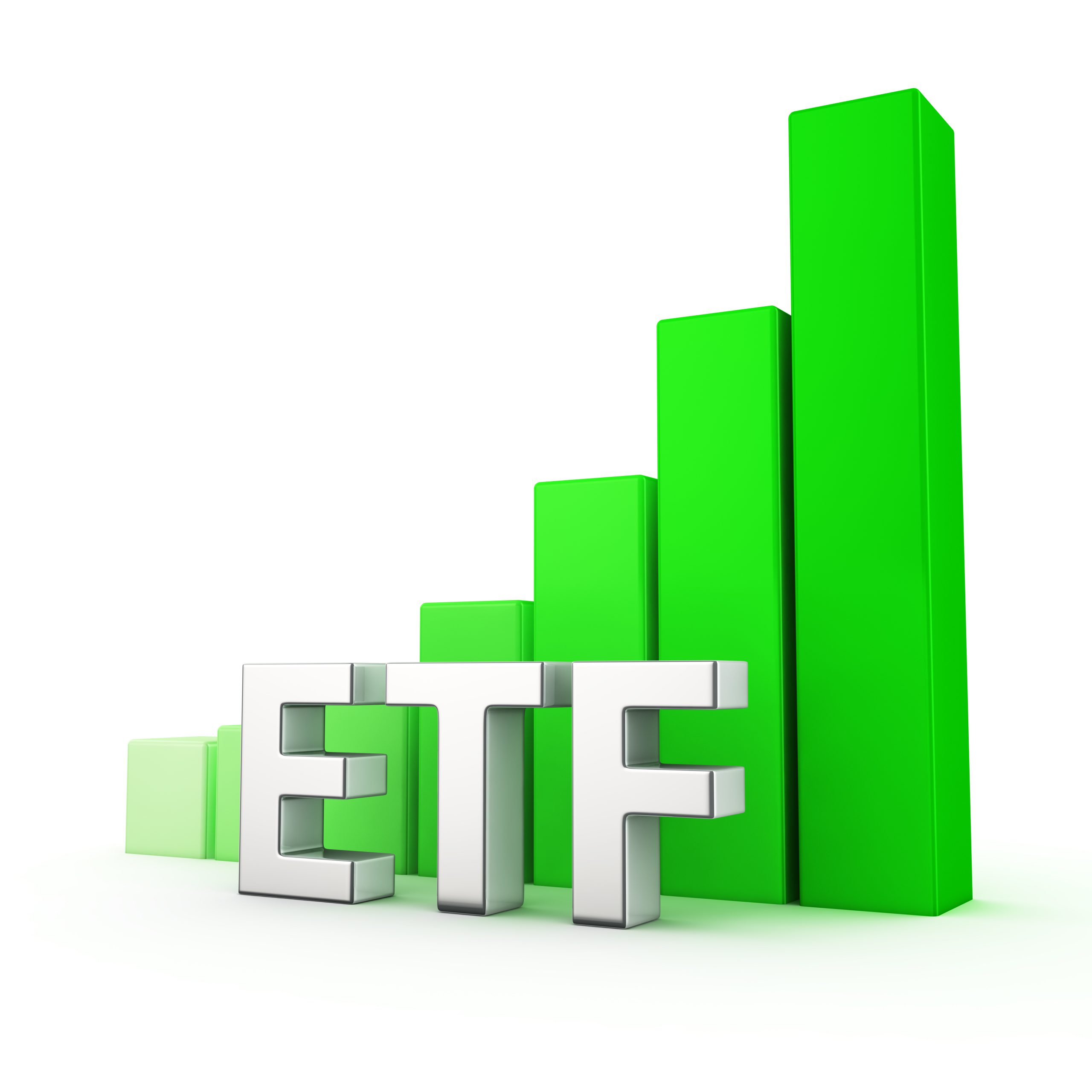
Investing in tech equities ETFs can be a strategic way to gain exposure to the technology sector without picking individual stocks. They typically hold a broad range of companies engaged in information technology, software, communications equipment, data storage, electronics, cyber security, and telecommunications.
Given the backdrop, let’s look at the best-performing Technology Equities ETFs: First Trust NASDAQ Technology Dividend Index Fund (TDIV), Vanguard Communication Services Index Fund ETF (VOX), and VanEck Semiconductor ETF (SMH) with a high potential for returns and instant diversification.
According to the latest forecast by Gartner, worldwide IT spending is poised to total $5.06 trillion in 2024, reflecting an increase of 8% from the previous year. Also, this growth puts global IT spending on track to surpass $8 trillion before the end of the decade. Spending on data center systems is expected to grow notably due to enterprises planning for generative AI.
The information technology market is expected to grow to $12.42 trillion by 2028, growing at a CAGR of 8.3%, driven by factors like globalized IT services, digital transformation, cybersecurity innovations, smart city development, and evolving e-commerce. Also, trends like cloud computing, machine learning, IoT, and AI will contribute to the market expansion.
Moreover, the global artificial intelligence market is anticipated to grow to $1.81 trillion by 2030, growing at a CAGR of 36.6% during the forecast period (2024-2030).
Tech equities ETFs provide broad diversification and invest in companies offering cutting-edge solutions, innovative tools, and much more. These ETFs are known for high growth potential since the tech sector has historically experienced rapid growth due to continuous innovation and surging demand for tech products and services.
Besides, tech ETFs generally have lower expense ratios than actively managed mutual funds, making them cost-effective. However, it is essential to note that the tech sector can be subject to high volatility.
Given these encouraging trends, let’s look at the fundamentals of the top three Technology Equities ETFs, beginning with number 3.
ETF #3: First Trust NASDAQ Technology Dividend Index Fund (TDIV)
TDIV tracks a modified dividend-weighted index of US-listed technology companies that pay regular dividends. The ETF seeks investment results corresponding to the price and yield of an equity index called the NASDAQ Technology Dividend Index. It holds a portfolio of securities classified as a technology or telecommunications company and must have a minimum market cap of $500 million.
The fund has assets under management (AUM) of $2.49 billion. TDIV’s top holdings include Apple Inc. (AAPL) with an 8.14% weighting, followed by Broadcom Inc. (AVGO) at 7.75%, and Microsoft Corporation (MSFT) and Texas Instruments Incorporated (TXN) at 7.61% and 7.44%, respectively.
The ETF has a total of 87 holdings, with its top 10 assets comprising 55.59% of its AUM. TDIV’s expense ratio is 0.50%, lower than the category average of 0.58%. Over the past month, its fund inflows were $7.23 million, and $77.35 million over the past year.
TDIV pays an annual dividend of $1.13, which translates to a 1.53% yield at the current price level. Moreover, the fund’s dividend payouts have increased at a CAGR of 4.8% over the past three years. Notably, TDIV has paid dividends for 11 consecutive years.
TDIV has surged 20.6% over the past six months and 32.8% over the past year to close the last trading session at $73.52. It has a beta of 1.0. The fund’s NAV was $73.53 as of June 5, 2024.
TDIV’s POWR Ratings reflect solid prospects. The fund has an overall rating of A, translating to a Strong Buy in our proprietary rating system. The POWR Ratings are calculated by considering 118 different factors, with each factor weighted to an optimal degree.
TDIV has an A grade for Trade and Buy & Hold. It also has a B grade for Peer. Within the A-rated Technology Equities ETFs group, it is ranked #13 of the 119 ETFs.
To access all TDIV’s POWR Ratings, click here.
ETF #2: Vanguard Communication Services Index Fund ETF Shares (VOX)
VOX is managed by The Vanguard Group, Inc. The fund invests in companies that provide communication services, including traditional telecoms and media and internet services. It seeks to track the performance of a benchmark index that measures the investment return of communication services stocks.
The ETF tracks the MSCI US IMI 25/50 Communication Services Index. With $4.14 billion in AUM, VOX’s top holdings are Meta Platforms Inc. Class A (META) with a 20.02% weighting, Alphabet Inc. Class A (GOOGL) at 14.14%, and Alphabet Inc. Class C (GOOG) and Verizon Communications Inc. (VZ) at 11.30% and 4.52%, respectively.
The fund has a total of 119 holdings, with its top 10 assets comprising 70.67% of its AUM. It has an expense ratio of 0.10%, lower than the category average of 0.37%. VOX fund inflows were $49.52 million over the past six months and $325.70 million over the past year.
VOX pays an annual dividend of $1.24, which translates to a 0.90% yield at the current price level. Moreover, the fund’s dividend payouts have increased at a CAGR of 11.2% over the past three years. VOX has paid dividends for 17 consecutive years.
VOX has gained 23.3% over the past six months and 32.2% over the past year to close the last trading session at $136.69. It has a beta of 1.04. The fund’s NAV was $136.61 as of June 5, 2024.
VOX’s sound fundamentals are reflected in its POWR Ratings. The fund has an overall rating of A, which translates to a Strong Buy in our proprietary rating system.
The fund has an A grade for Trade, Peer, and Buy & Hold. Of the 119 ETFs in the Technology Equities ETFs group, VOX is ranked #9.
Click here to see all the VOX ratings.
ETF #1: VanEck Semiconductor ETF (SMH)
SMH is a highly concentrated fund that invests in common stocks and depositary receipts of US-listed semiconductor companies. It also includes midcap companies and foreign companies listed. The fund tracks the MVIS US Listed Semiconductor 25 Index.
SMH has an AUM of $20.56 billion. Its top holdings include NVIDIA Corporation (NVDA) with a 24.17% weighting, followed by Taiwan Semiconductor Manufacturing Co., Ltd. Sponsored ADR (TSM) at a 12.48% weighting, and AVGO and QUALCOMM Incorporated (QCOM) at 7.09% and 5.14%, respectively. SMH has a total of 26 holdings, with the top 10 assets comprising 74.65% of its AUM.
The fund has an expense ratio of 0.35%, compared to the category average of 0.58%. Over the past six months, SMH fund inflows came in at $3.80 billion, and $4.05 billion over the past year. Also, it has a beta of 1.35.
SMH pays an annual dividend of $1.04, which translates to a 0.41% yield at the current price level. The fund’s dividend payouts have grown at a CAGR of 11.5% over the past three years. Also, SMH has paid dividends for 11 consecutive years.
SMH has gained 60.2% over the past six months and 76.3% over the past year to close the last trading session at $254.41. The fund has a NAV of $254.48 as of June 5, 2024.
SMH’s POWR Ratings reflect its strong outlook. The ETF has an overall rating of A, which translates to a Strong Buy in our proprietary rating system.
SMH has an A grade for Buy & Hold, Trade, and Peer. The fund is ranked #3 among 119 ETFs in the same group.
To access all the POWR Ratings for SMH, click here.
What To Do Next?
43 year investment veteran, Steve Reitmeister, has just released his 2024 market outlook along with trading plan and top 11 picks for the year ahead.
SMH shares rose $1.42 (+0.56%) in premarket trading Thursday. Year-to-date, SMH has gained 46.22%, versus a 12.83% rise in the benchmark S&P 500 index during the same period.
About the Author: Rjkumari Saxena

Rajkumari started her career as a writer but gradually shifted her focus to financial journalism, leveraging her educational background in Commerce. Fascinated by the interplay of business and economic shifts in equities, she aspires to evolve as an analyst. With a knack for simplifying complex financial concepts, her mission is to empower investors with insights that lead to profitable decisions.
3 Tech Equities ETFs for Aggressive Investors StockNews.com






